“… if you have a voice than you should try and use it to say something, no matter how small your soapbox is.”
BlakOPz do things a little differently: Mike Bender and Alex King have made a point of approaching the sounds and visual aesthetics of harsh EBM in their own inimitable fashion since the project’s relatively recent inception in 2010. Now with a few tours and some international shows under their belts, the band has released their second album As Nations Decay, delving still further into the ideas of information, terror and control that informed their debut Blood, Sweat and Fear without compromising on the dancefloor aggression that has defined their sound. We caught up with the Arizona based duo to chat about stepping their game up, the differences in American and European dance music and the responsibility that goes with the use of military imagery.
“Missing the deadline was exactly what this album needed.”
ID:UD: As Nations Decay sounds like a pretty big level up from the first record in terms of sound and composition to us. With a relatively short period of time between the two albums, were guys specifically looking to upgrade BlakOPz for the sophomore LP?
Alex: We were most definitely trying to “upgrade” and step up our game on the 2nd album. I think it’s important to keep pushing yourself in whatever you are passionate about so that you can attempt to be better at what you love. I feel like we are constantly learning from experimentation, from each other and from being open to numerous styles of music. I think I speak for both of us when I say that we are always in a state of perpetual learning. I also think it’s an essential component to become a better artist. Our first album felt a little rushed and a lot was coming at us when we wrote it. The second album we felt needed to evolve naturally.
Bender: Yeah, the first album definitely felt rushed. We had a small amount of time to put Blood Sweat and Fear together and I know there were some tunes on there that could’ve been much better given some extra time to fine tune them. For As Nations Decay, we agreed not to settle for just anything, and that no song would make it to the album until we were both 110% satisfied. We tried new production techniques, experimented with some new plug-ins and aimed to make this new album a force to be heard.
ID:UD: That runs somewhat counter to the narrative we commonly hear of a band being able to pull from and polish their best material for their first record, and then being under pressure to quickly write and record a second. Were label or touring issues a factor in the rush you felt? How did you avoid that the second time around?
Alex: Well, there are certain times that are optimum to release an album and reach enough peoples attention. Months prior to when we finished the first album we had presented about six songs to the label. At that time they were happy with what we had and wanted more for a complete album. So we spent about three months (day and night) working on the rest of the tracks that would make up Blood Sweat and Fear. Considering we had never previously made a full album before, it was a lot of work, mostly because we spent most of our time under a microscope criticizing our efforts. If you look hard enough you can always find something in your work to scrutinize. There were a few choices that slipped through that we felt we could have done better.
The second album missed the initial deadline twice, which we felt was perfectly OK for the sake of the record. We realized that we were stuck with our own scrutiny for life if we rushed it. We definitely wanted to minimize that feeling altogether, unlike the last album. Missing the deadline was exactly what this album needed. There were some tracks we ended up completely changing or new tracks we didn’t have before that we loved because of the extra time. Inspiration is a son of a bitch sometimes and you just got to run with it when you get it. It doesn’t always come when you need it to, especially when life happens to you. Which is why we have said that there is some real emotion between the beats on the second album.
ID:UD: The lyrical content of the record feels like an extension and expansion of the themes that Blood Sweat and Fear was built around, with a very critical view of the current state of the US political climate. What inspired the themes of the record, and how important is it to you that BlakOPz takes a stance in its music?
Alex: We pretty much started the second album about the same time we finished the first album in February of 2012. Around that time a lot of people and artists were reflecting on the end of the world. I began to think about different ways the world or society could end. Societies are created by people and can also fall apart because of people. I began to think about the apathetic views that people have these days about politics and life in general. It seems so complex for some to consider where life is headed when we have 18 billion kittens to see on Facebook to distract us. It’s fine to enjoy life and to seek out the good in it, but seems ironic though because we are at the height of information with the internet and you would think we would be much more aware of what’s going on. Perhaps it’s escapism that defines our actions because it’s much easier to deal with something you feel you have no control over. It could also be that some are overwhelmed with the information.
Either way, we should be paying much more attention before the rights we have are gone. A line from the self-titled album track: “Apathy tightens the shackles of slaves”. If we don’t want to care or pay attention because it’s too much to think about then someone will surely do it for us. Possibly against our will. This is the inner decay that rots a nation: As Nations Decay. We wanted to tackle a lot of ways that society can or does decay: apathy, addiction, mental disease, the internet and even the Westboro Baptists. How important is it to us that we take a stance in our music? I think it’s important to have a stance but not preach at people to the point of turning one deaf. Though one could argue that’s about the only way to reach someone now. We speak our mind pretty clearly in our music, and that’s how I like to reach people.
ID:UD: Where military aesthetics are often used in industrial, BlakOPz seems pretty set on using those tropes in a responsible fashion, with context and meaning. Do you feel a responsibility to treat those visual and lyrical tropes in a substantial way? Do you feel like we’re at a stage where we’ve become desensitized to the actual horrors warfare via depictions in mass media?
Alex: We do not claim to have all the answers or know how to run a country but I certainly feel that opening your eyes, seeking out the answers from EVERY point of view, questioning everything and coming to your own conclusion is a huge step in the right direction versus an apathetic one. I hope that message is received loud and clear most of all. The main goal is to get people thinking and question while expressing my concerns. As far as mass media is concerned, it’s a double edged sword. While we have a lot of information swirling around, I feel like there is a lot of bias in the media. It’s really hard to know what is real or what has been put in our faces on purpose. Which is why I seek out opinions from every type of perspective I can. Like I mentioned before, I certainly feel like people are much more prone to escape than deal with it. So yes I think we have become desensitized to life in general. There is a lot to keep us preoccupied now.
Bender: There’s no question we are ALL much more desensitized to the violence and horrors of war than, say, even 20 years ago. The news media, movies, television shows, video games and most of all, the internet have all strived to be more shocking, more terrifying and more violent. While our image is mildly militant, we have no intentions on exploiting the horrors of war in anyway. I think we shine a light on some of the problematic situations taking place in our military and government which seem to go willingly unnoticed by so many people these days.
“I think we are digging deeper and deeper into the primordial creative ooze…”
ID:UD: Do you find that people are more or less inclined to consider your lyrical content based on your style? Do you think being high-tempo and danceable serves as a deterrent to people listening to what you have to say (ie “It’s just dance music”) or is it a useful way to expose your message to a broader audience?
Alex: I think that within this scene there tends to be a better lyrical listener than most genres, although I am sure some people probably just enjoy the music a bit more. I had a friend/peer tell me “too many hooks are bad for Industrial.” While I see his point, I do not agree with him. I enjoy hooks and melodies a lot. I think you can have a balance of both lyrical content and danceable hooks. Maybe the lyrical content is an aftertaste/thought, but it’s still there if people want to enjoy it. I personally feel it’s important if you have a voice that you should try and use it to say something, no matter how small your soapbox is. On the other side of the same coin some people put a little too much stock in lyrical content and have trouble just letting go enough to allow themselves to be moved by the music. I think both are quite important. I had a similar conversation with :SITD: about their song “Laughingstock”. That song has some very sad lyrical content about a school full of kids who were gunned down set to a very danceable beat. I guess it’s a very odd dichotomy between the two that just works.
Bender: I agree with Alex. Different listeners will like different elements of our tunes. I think when performing live, our songs have the high energy and power to keep the dancefloor in a constant frenzy. Outside of the club, at home or in your car, listeners have a chance to pay more attention to the lyrical content and the messages written within.
ID:UD: Musically BlakOPz uses some elements of hardstyle that we would generally think of as being more European than American. Do you ever think of your music and influences in terms of region?
Bender: Not particularly. I spent many years as a hard trance/dance DJ and producer but my influences come from all over the globe. Trance, techno, hardstyle, industrial, electro, house, breakbeat, drum n’ bass, dubstep, hardcore and even rap. I think we tend to just smash it all together until we have a sound that gets our toes tappin’ and our heads noddin.’
Alex: Bender’s music has always had that sort of European hard dance flair to it whether it’s intentional or not. Now as far as region for our music, I can definitely see that it has turned some heads overseas already, which is great because we want to tour Europe as soon as we possibly can. With this album I definitely feel it has a much wider appeal than the first. We really don’t try to box in our tastes too much when we write a track. Sure, we have a 4×4 style but we like to mix it up and just let go in the creative process. If you box yourself in too far you end up making something that is canned. I think we are digging deeper and deeper into the primordial creative ooze as we progress as a band.
ID:UD: Do you think you appeal to different audiences for different reasons sonically?
Alex: I am sure our music may reach our scene audience more than another but we do get some love outside the scene too. Recently when we played a show for DEF CON, the hacker convention in Las Vegas that helped a lot to spread our music. It’s really refreshing to see us mixed in with a lot of different music than we would normally have reach. We love so many styles of music though so hopefully people catch that in our work.
ID:UD: What was the reception at DEF CON like? We imagine some people there would be familiar with some industrial music, but not all. The themes of political control and conspiracy in your music seem like they’d match the Defcon crowd well.
Alex: The reception was great and the staff were amazing. They have their stuff together and there are A LOT of people attending. The convention has so much going on during the nights too that it’s really hard to compete with a lot of the events. EFF.org had an event to raise money going on across the hall from where we performed that night. I believe there were literally 30 events going on in and outside of the convention each night. Regardless, we met so many interesting people of the sort that we tend to give a nod to. We even added our track “BlakOUt” to the official DEF CON soundtrack which is all about protecting your rights on the internet and beyond. We have seen that song played in DJ sets outside our scene because of it. We hope to be back next year to really enjoy a lot more of the conferences and play for our new fans.
ID:UD: Much like the first album, the new record features collaborations, specifically with Sleetgrout and Nitronoise. How did those come about? Is outside collaboration something you strive to include in a BlakOpz album, or does it occur more organically?
Alex: We love both of these bands and we feel like these guys are really doing something with dance music in this scene that tingles our musical funny bones. I personally have become close friends with all the guys from Nitrooise on a personal level. I consider them to be like brothers. I think we all admire each others styles in some way. Sleetgrout was a band that I had heard in the past but when I heard their remix for Anthracitic Moths’ “Shogam Marsh” I starting spinning it in local DJ sets. I then heard Sleetgrout’s newest album We Had A Carnival and was an instant fan. Funny thing is, as I was telling Bender that we needed to do something with them and Igor (of Sleetgrout) hit me up and said he wanted to work with us. Great minds think alike, I guess. We are fans of both bands and we are very pleased with the outcome of the tracks. Plus, if we play together we have some fun to share with everyone.
Bender: I think our styles are very similar in some respects, so it was a fun challenge trying to find a sound and structure that would highlight the talents of both bands involved. And I think it’s refreshing to collaborate equally with other artists on a brand new tune rather than the standard remix of an already existing one.
“People just need to be open to change and if they aren’t then they should shut up and start making the music they want to hear.”
ID:UD: We know Alex is a big fan of horror and genre cinema, and noted that you had specifically referenced Videodrome on the track “Long Live the New Flesh”. Are you interested in using cultural touchstones in a metaphorical way, or is it just a song literally about the movie? Being that it’s a movie that has some history within the genre, was there some broader connection to industrial you were alluding to on it?
Alex: The concept behind Cronenberg’s Videodrome is just amazing. I have always been haunted by its ideology and Cronenberg’s amazing gift of direction and atmosphere. It’s significant for its time and it’s still significant in the current political climate today. People do not trust corporations, mass media and the government. On a daily basis I can turn on the television and be told what to think, how to feel about a certain product or ideal and inadvertently react to it’s message. Marketing in itself is engineered to trigger certain types of reactions from peoples emotions. Though the original concept of Videodrome is a bit more fleshy, it still has a very powerful message in todays world. To answer your question I wrote that as a nod to Cronenberg and also telling people to infect the very signal that tries to control your thinking back in on itself, essentially thinking on your own. I am not a huge fan of television anyway and I hate being told what to think so you can imagine this is right up my alley.
ID:UD: At a time when the live and club scene in industrial seems to be in flux, can you give us some perspective on where you things are headed for bands in the genre? Is there still a place for artists to make music in this genre and have it connect with an audience in North America?
Alex: I think we certainly are going through a weird time as a scene. Some people like to blame it on a certain type of music. Some like to say it’s the attitude or the culture. I personally think it’s the sense of community and unity that has been lacking. Is it because of the internet and how connected we are? I can’t say, but I would like to think things will unfold the way they naturally do and iron themselves out before long. Truth is we need to just accept each other or one day it could be gone. Electronic music has been HUGE and will continue to be a large part, but I think we might see some styles dipping into guitars and more live instrumentation again. Music will mutate and cross breed a million times over, but the underlying message will always be the same. It always has. People just need to be open to change and if they aren’t then they should shut up and start making the music they want to hear. That’s what I did and it’s rather fulfilling mentally. I think it’s time to band together and just enjoy the message and the music. Regardless of what someone tells you is cool. It’s all about the music.
Bender: I totally agree 100%. It’s all about the music and the release of frustration and creativity. As long as at least one person listens and connects, then I am totally content.

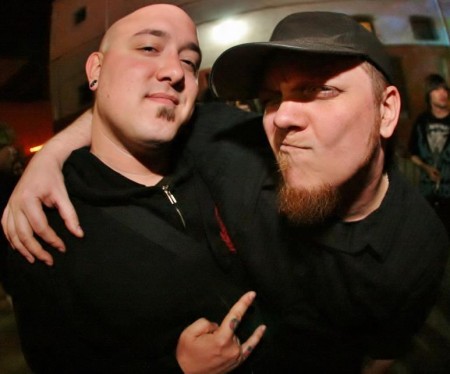

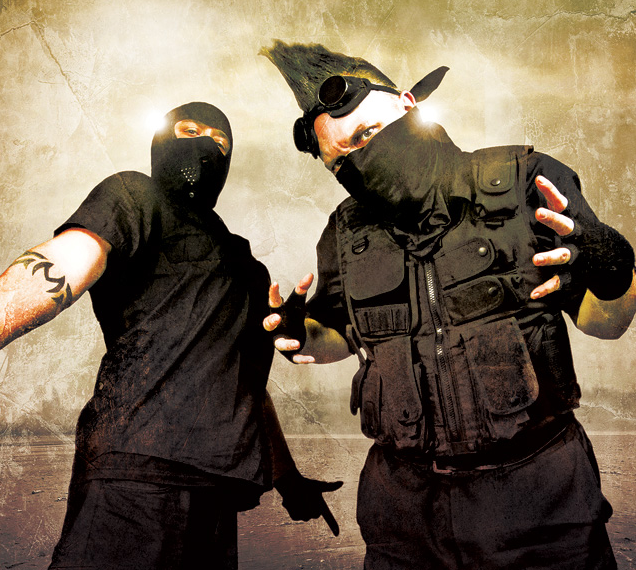
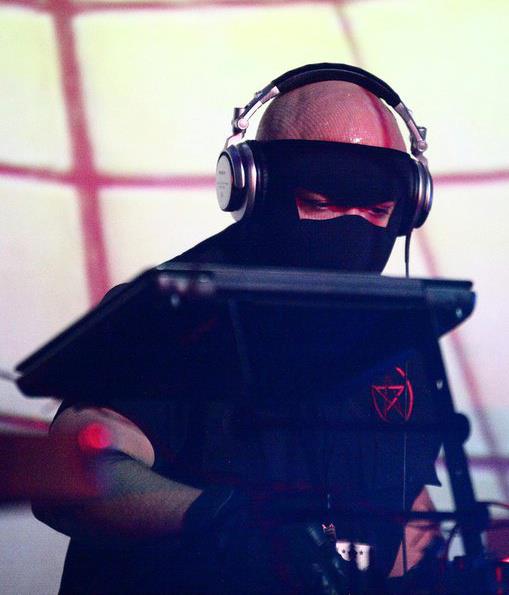
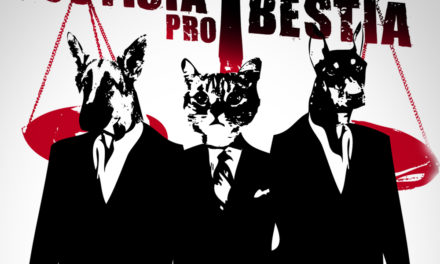
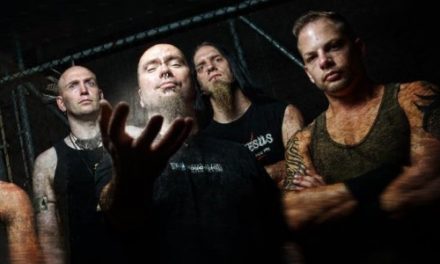
![An Interview With [:SITD:]](https://www.idieyoudie.com/home/wp-content/uploads/2011/10/sitd-440x264.jpg)

Great interview! Very well written/spoken. Alex is a creative genius & I know these guys are going to go far. I’m happy to call him my friend & glad to have had the opportunity to get to know him. U guys have my full support & I make sure to spread your music around as much as possible. <3